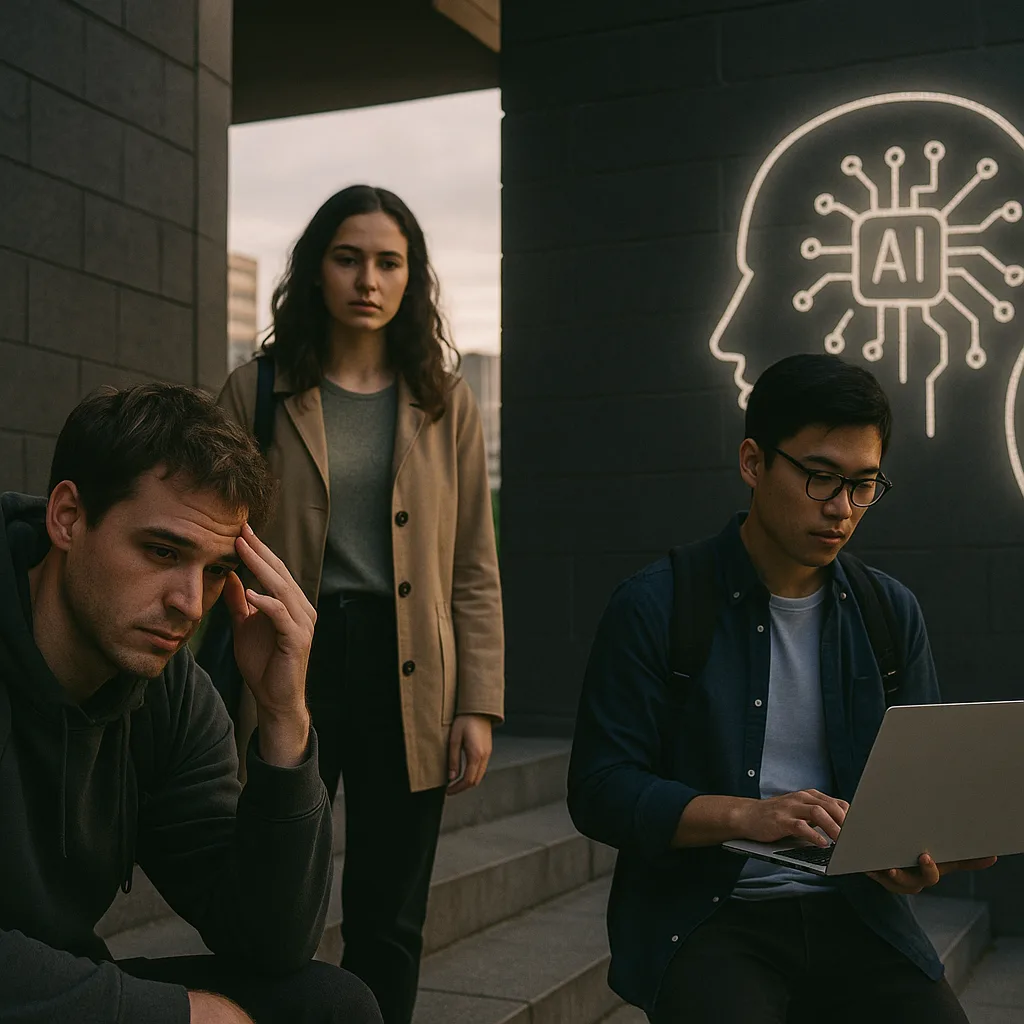Introduction
The era of artificial intelligence (AI) is upon us, reshaping industries and redefining job landscapes. Yet, amidst this technological renaissance lies a poignant paradox: computer science graduates, the supposed custodians of the digital future, are confronting unprecedented challenges in the AI job market. AI job market dynamics, primarily driven by AI automation, pose significant challenges to new entrants, startlingly evident in the tech employment sector. Understanding these intricacies is critical, not just to the graduates and educators, but to an industry teetering on the brink of transformation.
Background
To grasp the current situation, one must first consider the foundation upon which it was built. Traditionally, computer science graduates were the heartbeat of the tech employment landscape, eagerly absorbed into firms seeking fresh talent to mould into the leaders of tomorrow. However, the ground beneath has shifted sharply. An alarming statistic from the UK’s National Foundation for Education Research (NFER) shows a staggering 50% decline in tech job adverts from 2019/20 to 2024/25, with entry-level tech roles being the most affected (source).
The increased adoption of AI coding tools in recruitment processes further complicates this terrain. While such tools offer efficiency, they often sideline nuanced skills that entry-level candidates possess, creating an inadvertent bottleneck in the pipeline of new talent.
Current Trends in the AI Job Market
A brave new world awaits today’s graduates, where automated hiring processes are the new norm. Companies, in a bid to streamline recruitment and save costs, now utilise AI-driven systems that many argue risk deterring potential talent.
A compelling example from BBC News highlights instances where applicants faced up to an eight-stage application process, with some spending almost a year in recruitment limbo (source).
Graduates are, however, not idle bystanders. Many are leaning into this digital pivot, familiarising themselves with AI applications and their limitations. According to a Stack Overflow survey, almost half of developers use AI tools daily, despite only one-third trusting their output. This highlights a growing acceptance, but a cautious one, amongst these tech newcomers (Stack Overflow Survey, 2025).
Insights from Industry Experts
Industry experts echo a resonant worry: “If nobody’s hiring younger developers, then you’re going to arrive at this point where you don’t have senior developers either, because you’ve completely killed your pipeline.” This sentiment, voiced by several industry leaders, encapsulates a pervasive fear that today’s entry-level drought will lead to tomorrow’s expertise void (BBC News).
Yet, amid these challenges, a glimmer of hope shines. AI-savvy graduates who navigate these tech mazes find themselves in niches they hadn’t anticipated. As Prashanth Chandrasekar, CEO of Stack Overflow, suggests, there’s an “insatiable appetite for technologists and developers” who can traverse and integrate AI effectively.
Future Forecast: Navigating the AI Job Market
As we peer into the horizon, the future of tech employment is anything but linear. The role of AI in shaping job opportunities will continue to surge, prompting a reconsideration of traditional recruitment and hiring practices. A balanced approach remains paramount, one that sees AI as an augmentation tool rather than a replacement for human potential.
To ensure the tech vanguard remains robust, recruitment processes must evolve. As alluded to above, integrating AI without marginalising new graduates is not merely ideal, it is essential. In the coming decade, success will belong to those entities that harness AI’s capabilities while preserving the richness of human insight and creativity.
Final Thoughts
In this unfolding narrative, every stakeholder has a role to play. Graduates, educators, and industry leaders must engage in candid conversations about the transformative employment landscape. By sharing experiences and proposing actionable strategies, we can better support those entering the tech field today.
Graduates, your journey is beginning in a dynamic epoch, embrace it, adapt, and thrive. Explore further resources, such as the National Foundation for Education Research (NFER) report and Stack Overflow studies, to navigate this complex but promising world. The future is yours to shape, one AI challenge at a time.






